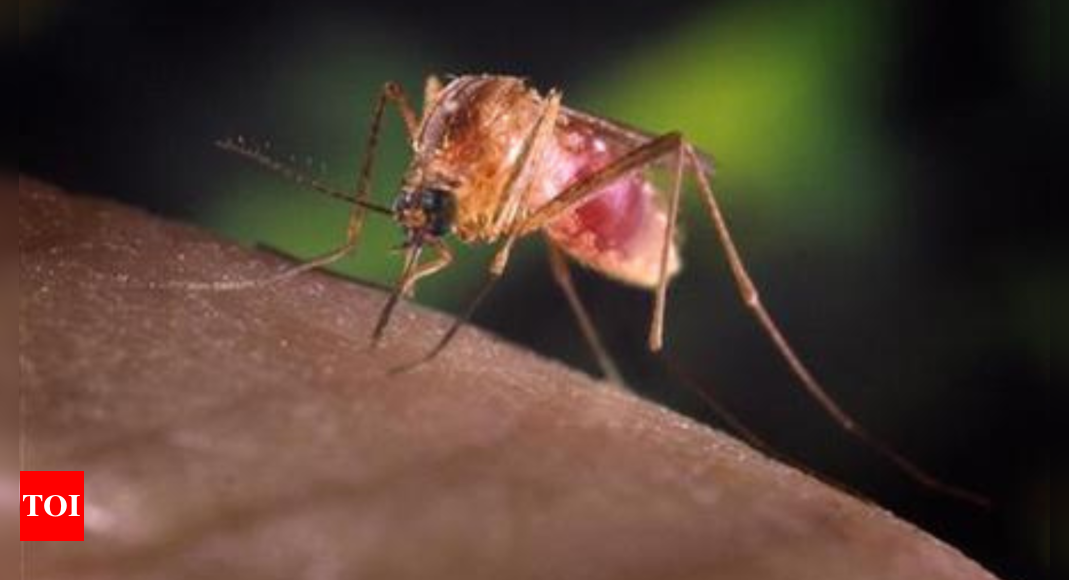
The US is on alert after cases of a mosquito-borne West Nile virus were reported. The virus became a hot topic after multiple people tested positive including Doctor Anthony Fauci, former director of the National Institute of Allergy and Infectious Diseases.
A prominent figure in public health, Fauchi was hospitalised for six days after testing positive for the virus.He said his bout with West Nile virus felt like he’d “been hit by a truck”, as per USA Today. The 83-year-old immunologist had spent six days in the hospital. He has been recovering at home since.
Another case of the virus was reported as 18-year-old Missouri teenager John Procter VI suffered rare complications from the West Nile virus that left him paralysed and on a ventilator, as reported by NBC news.
A Houston man John Hudson is also said to have contracted West Nile virus, most likely due to the increase in the mosquito population after Hurricane Beryl. He remained in the ICU for several days before being sent to a rehab facility, as per Fox news.
What is West Nile virus?
West Nile virus is the leading cause of mosquito-borne disease in the United States. According to Centres for Disease control and Prevention of US, about 1 in 5 people who are infected develop a fever and other symptoms. About 1 out of 150 infected people develop a serious, sometimes fatal, illness. Cases of West Nile usually occur during mosquito season, which starts in the summer and continues through fall.
West Nile was first detected in the US in 1999. So far this year, 289 human cases of West Nile have been reported in 33 states of US according to the latest data from the Centers for Disease Control and Prevention. Thousands of people are infected with West Nile each year, though the majority never know it because they don’t develop symptoms. People over the age of 60 are at higher risk
Spread and Symptoms
West Nile virus is primarily transmitted through mosquito bites, with most cases occurring during the summer and fall mosquito season. The virus, part of the flavivirus group, can cause symptoms ranging from fever, headache, body aches, vomiting, diarrhea, or rash, to severe illness in rare cases.
Prevention
With no vaccines or specific treatments available for West Nile virus, experts stress the importance of preventing mosquito bites. Recommended measures include using insect repellent, wearing long-sleeved clothing, treating gear, and controlling mosquitoes around the home.
Transmission and Risks
West Nile virus spreads when mosquitoes bite infected birds and then humans. Though the virus rarely transmits between people, precautions are advised for those recently infected to avoid blood donation or organ transplant for 120 days.
A prominent figure in public health, Fauchi was hospitalised for six days after testing positive for the virus.He said his bout with West Nile virus felt like he’d “been hit by a truck”, as per USA Today. The 83-year-old immunologist had spent six days in the hospital. He has been recovering at home since.
Another case of the virus was reported as 18-year-old Missouri teenager John Procter VI suffered rare complications from the West Nile virus that left him paralysed and on a ventilator, as reported by NBC news.
A Houston man John Hudson is also said to have contracted West Nile virus, most likely due to the increase in the mosquito population after Hurricane Beryl. He remained in the ICU for several days before being sent to a rehab facility, as per Fox news.
What is West Nile virus?
West Nile virus is the leading cause of mosquito-borne disease in the United States. According to Centres for Disease control and Prevention of US, about 1 in 5 people who are infected develop a fever and other symptoms. About 1 out of 150 infected people develop a serious, sometimes fatal, illness. Cases of West Nile usually occur during mosquito season, which starts in the summer and continues through fall.
West Nile was first detected in the US in 1999. So far this year, 289 human cases of West Nile have been reported in 33 states of US according to the latest data from the Centers for Disease Control and Prevention. Thousands of people are infected with West Nile each year, though the majority never know it because they don’t develop symptoms. People over the age of 60 are at higher risk
Spread and Symptoms
West Nile virus is primarily transmitted through mosquito bites, with most cases occurring during the summer and fall mosquito season. The virus, part of the flavivirus group, can cause symptoms ranging from fever, headache, body aches, vomiting, diarrhea, or rash, to severe illness in rare cases.
Prevention
With no vaccines or specific treatments available for West Nile virus, experts stress the importance of preventing mosquito bites. Recommended measures include using insect repellent, wearing long-sleeved clothing, treating gear, and controlling mosquitoes around the home.
Transmission and Risks
West Nile virus spreads when mosquitoes bite infected birds and then humans. Though the virus rarely transmits between people, precautions are advised for those recently infected to avoid blood donation or organ transplant for 120 days.









